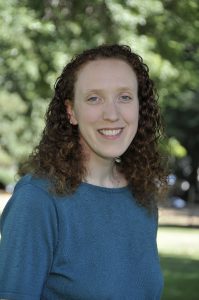As a medical physicist who once took the Maintenance of Certification Exam years ago, Miriam Weiser, MS, has a piece of advice for her fellow ABR diplomates: Use Online Longitudinal Assessment (OLA) to satisfy Part 3 of Continuing Certification.
“A point-in-time exam is not easy to study for,” she said. “It’s hard to know, especially the first time you do it, what will be asked. At that time (when a 10-year exam was used instead of OLA), I don’t think we were focused as much on walking-around knowledge. I found it stressful, and I think that the OLA process has been an improvement.”

Miriam knows OLA well. She has been chair of the therapeutic medical physics question-writing committee for the platform since it was introduced to medical physics in 2020.
She sees the new Continuing Certification Exam, a one-day exam taken every five years, as a less desirable way to assess diplomate knowledge than OLA, where questions are issued and answered over time.
“As somebody who doesn’t test well, I find OLA to be more meaningful and a better method,” she said.
Most volunteers who write ABR Initial and Continuing Certification questions get their inspiration from the workplace. Miriam, who works for Kaiser Permanente Northwest in Portland, is no exception. She wants to produce relevant questions, not ones that only apply to a limited audience.
She believes that writing ABR questions isn’t an opportunity for volunteers to flaunt their knowledge.
“I don’t want to write a hard question just for the sake of a hard question,” Miriam said. “I want questions that will let people show the knowledge they have and what they’re doing in their clinic.”
OLA questions go through an extensive vetting process in committees before they’re sent to participants. Miriam said it’s important that diplomates give feedback when they run across a question they think is too vague or doesn’t fit their work. Participant feedback can trigger an internal process that sometimes results in the question being pulled.
“If you see a question you think isn’t appropriate, please flag it,” she said. “We do review it, and I want to see that.”
Mike Taylor, MS, is a former co-worker of Miriam’s who has known her for almost 20 years. He invited her to become an ABR volunteer and has been impressed with what she has helped accomplish.
“Miriam played a key role in the development and rollout of the OLA program, helping guide the transition from the 10-year exam with thoughtfulness and care,” he said. “Her steady dedication didn’t just improve the process … it helped create a better experience for ABR diplomates.”
As often occurs in smaller subspecialties, Miriam also has served as an ABR oral examiner. She said the process is rigorous, for examinees and even for examiners, as they try to determine whether physicians or physicists are safe to practice independently.
“Every year I do it, I am a little anxious going in,” she said. “I can’t compare it to the nerves I felt as an examinee. But the examiners really want to help examinees demonstrate their knowledge in the best way possible.”
Miriam took her certifying oral exam in Louisville, a former rite of passage for ABR diplomates. She said the move to remote exams has been a positive change for those giving and taking exams.
“It was unbelievably stressful,” she said. “I think doing the remote exams is better. Certainly, for me as an examiner, and I hope for examinees, too. I think we’ve improved a lot there.”
On the Continuing Certification side, she believes that answering OLA questions goes beyond diplomate obligation. Miriam finds the platform educational and a great way to gauge physician or physicist knowledge, which benefits the public.
“I find OLA to be a good learning process,” she said. “I like that if you get a question wrong, you have the opportunity to understand the answer. We try to provide a good rationale and then you get to see a variation of the question and hopefully improve. I think it’s a really good method, especially for people who are working in the clinic. They get to know what they know and what they don’t know and improve their knowledge and hopefully their patient care. That’s the ultimate goal.”


